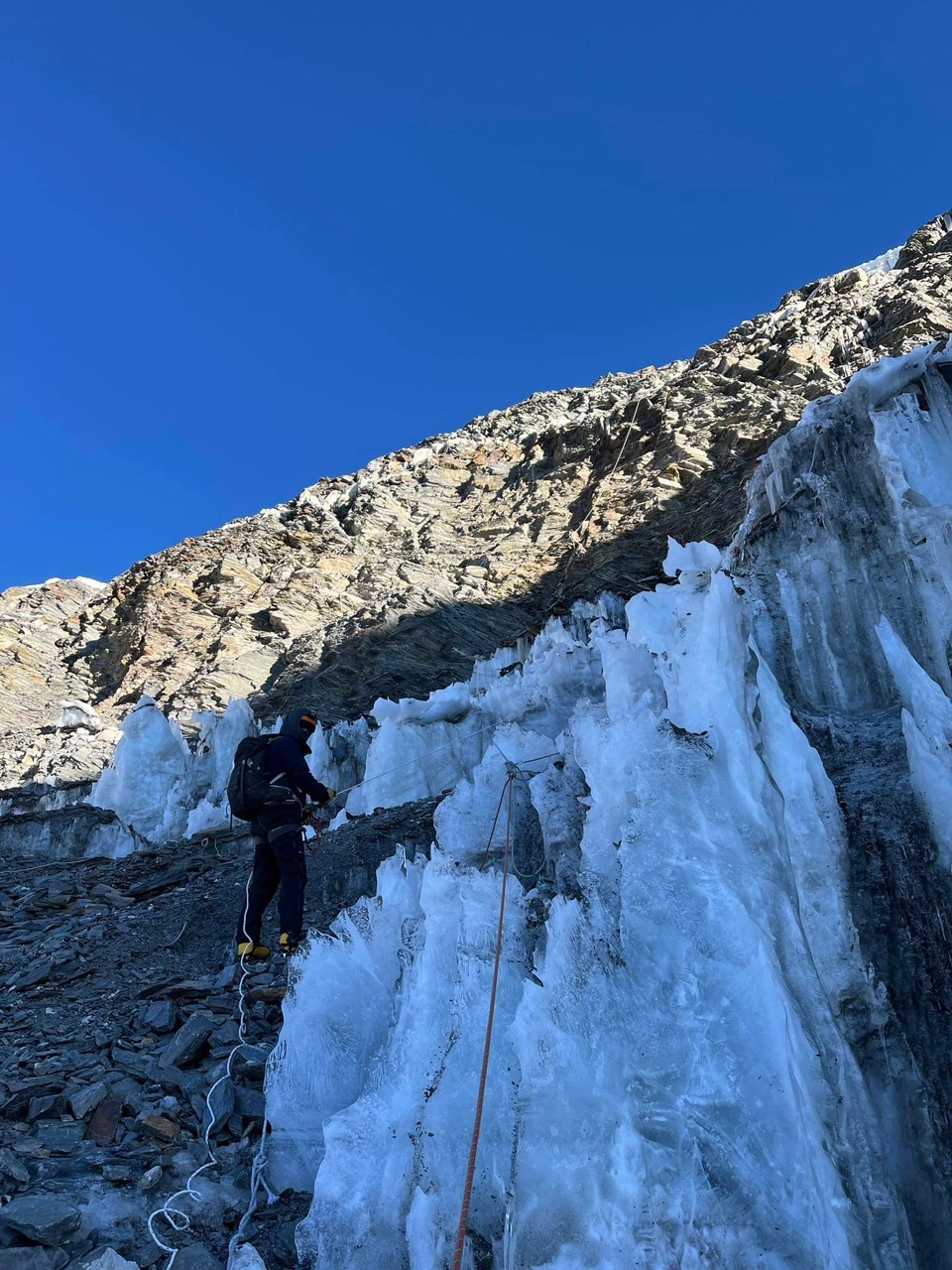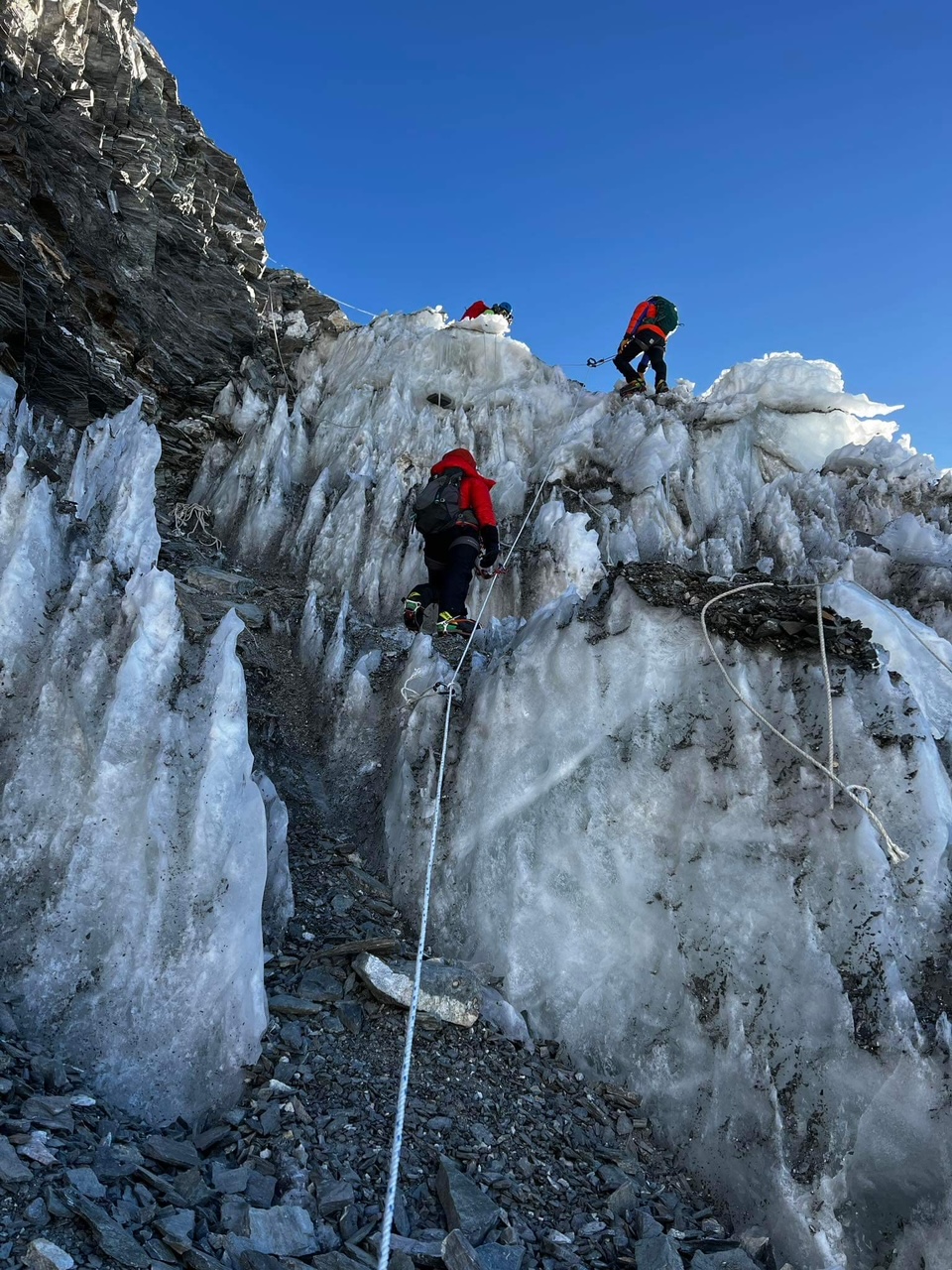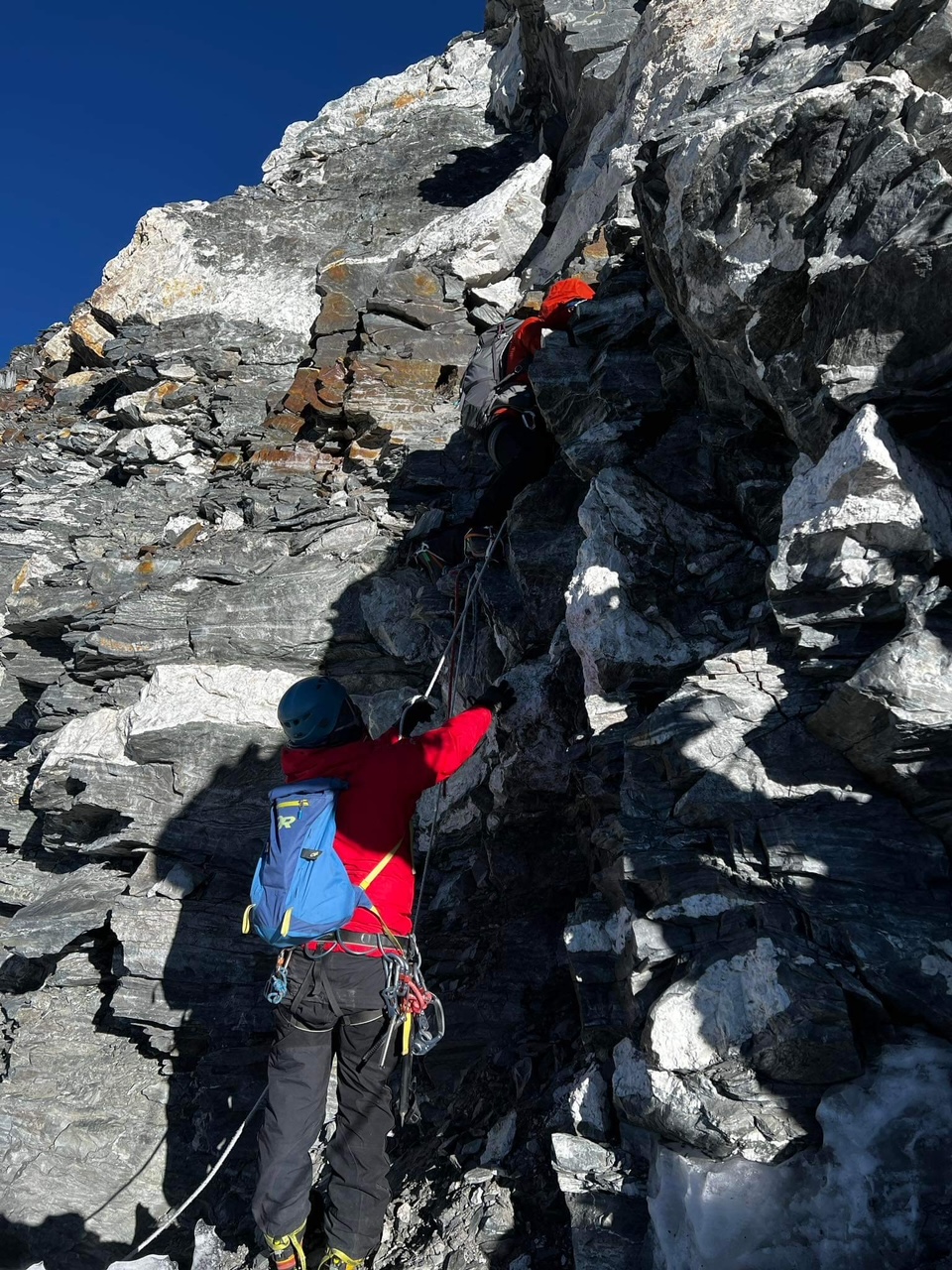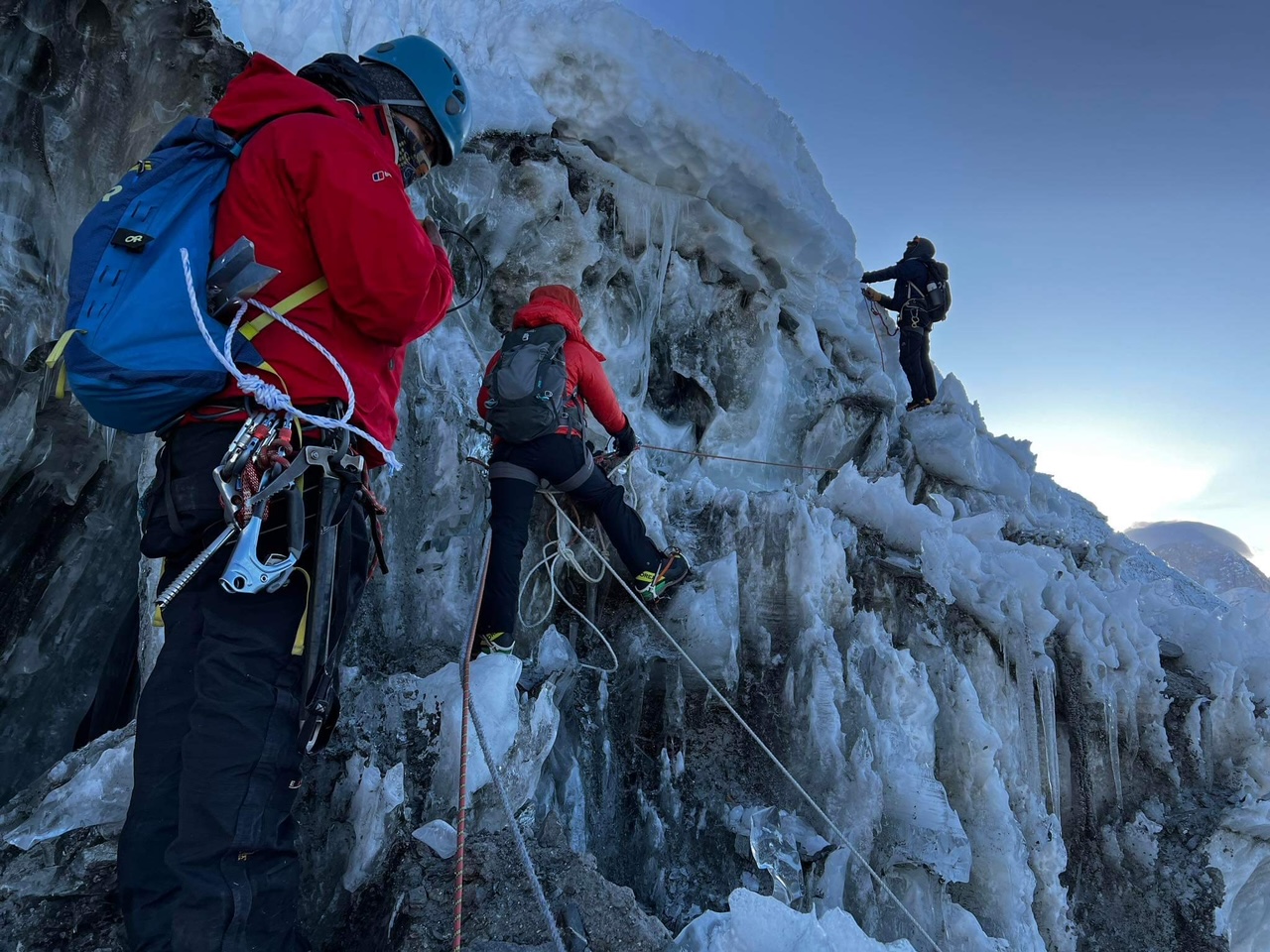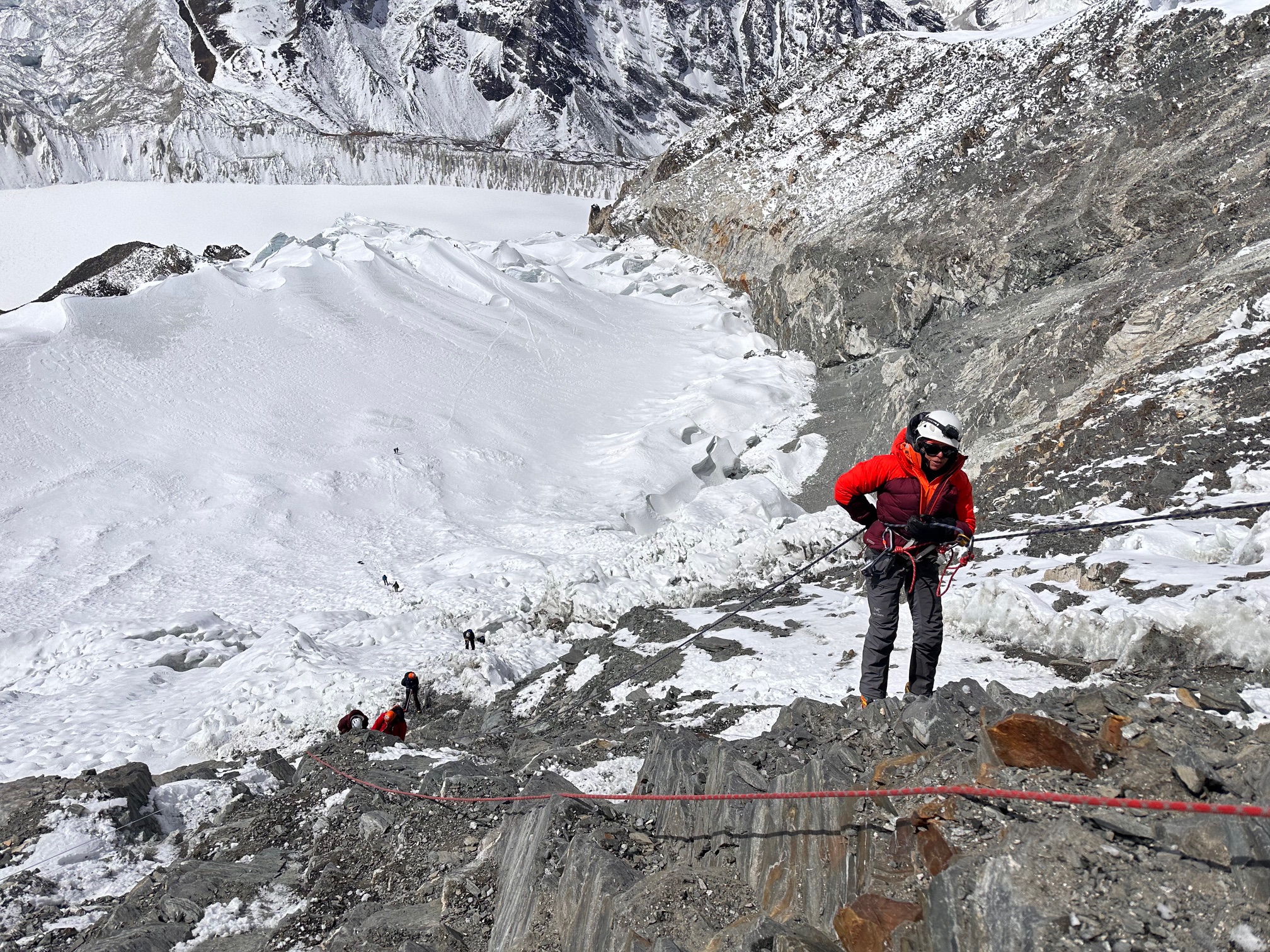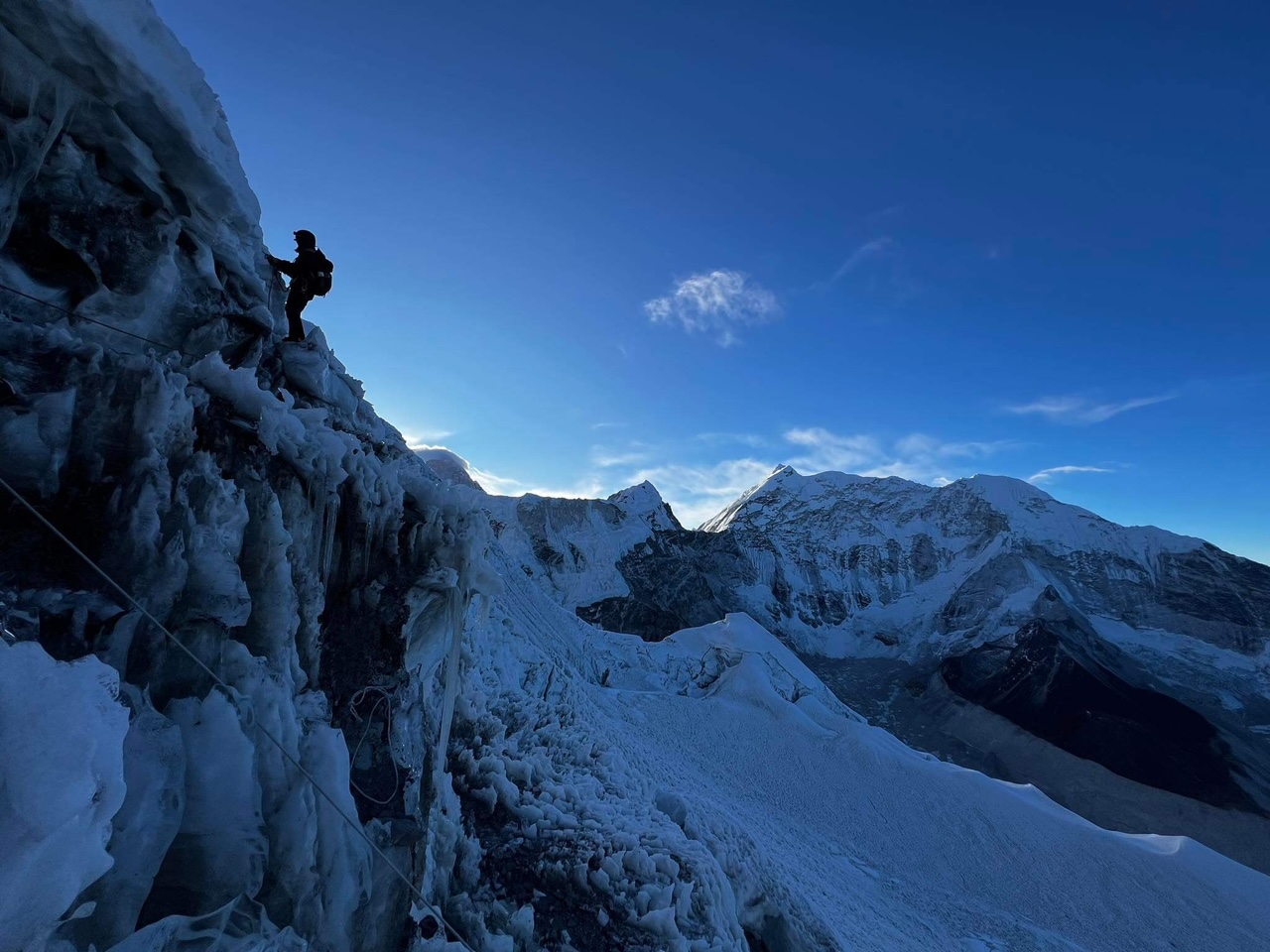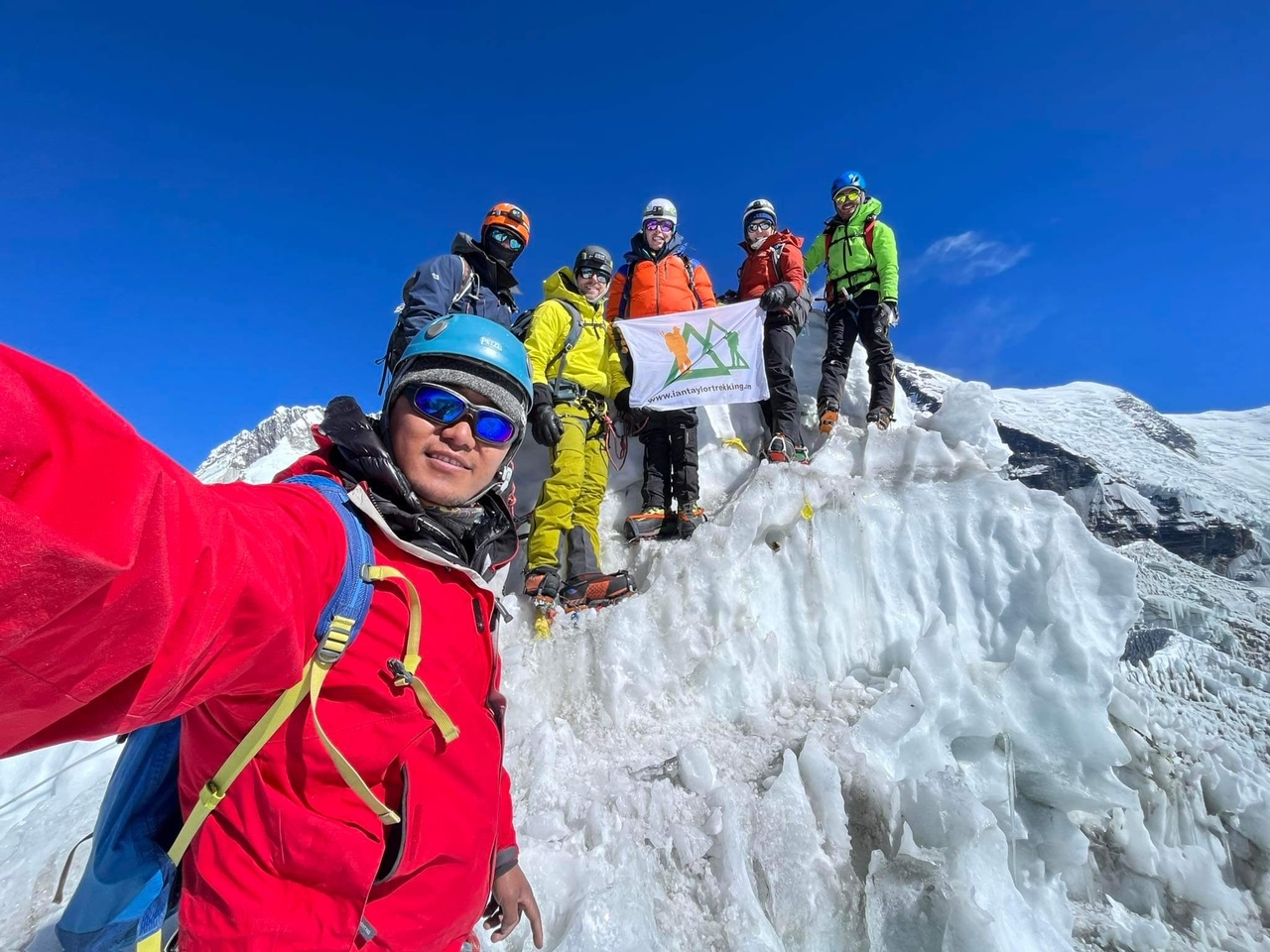Island Peak: A Mountaineer’s Dilemma in a Changing Climate. Climbing Island Peak in the Himalayas has long been a dream for adventurers seeking the thrill of high-altitude mountaineering. Situated in the breathtaking Khumbu region of Nepal, Island Peak stands at an imposing 20,305 feet, offering both a challenge and a reward for those who dare to ascend its slopes. Join us on Mera Peak or Lobuche Peak.
Real Concern on Island Peak
However, as a seasoned mountaineer who has summited this peak 25 times, I am compelled to share my concerns about the future of climbing in this iconic region. The convergence of increasing numbers of underprepared climbers and the rapid effects of climate change has created a precarious situation that demands attention. Lobuche East and Mera Peaks will be the options for entry level Himalayan peaks for the coming years.
Climbing Island Peak for the Final Time
I have spent 15 years climbing Island Peak and am ambivalent about my decision to walk away from this peak. I have seen some major changes in Nepal over the past 15 years, most for the worst.
In my 25 Island Peak trips I have so many amazing memories from Island Peak and so glad I have been able to lead some amazing people to the summit. It has been great watching people use Island Peak as a steppingstone for Ama Dablam, Aconcagua, Cotopaxi and Chimborazo, Cho Oyu and even Mount Everest.
Challenges of Climbing Island Peak
Ascending Island Peak is not for the faint of heart. It requires a combination of physical fitness, technical skill, and mental resilience. The journey begins in the bustling town of Lukla, where trekkers must navigate rugged terrain and acclimate to the thinning air as they make their way towards the Everest Base Camp. From there, the route to Island Peak traverses glaciers, crevasses, and steep ice walls, presenting a formidable challenge even to experienced climbers.
One of the most significant challenges of climbing Island Peak is the unpredictable weather. Sudden storms can descend upon the mountain with little warning, testing climbers’ ability to make split-second decisions and prioritize safety above all else. Furthermore, the altitude itself poses a serious risk of altitude sickness, requiring careful monitoring and acclimatization throughout the ascent.
The Impact of Climate Change
In recent years, however, another threat has emerged that jeopardizes the safety and sustainability of climbing in the Himalayas: climate change. The effects of global warming are particularly pronounced at high altitudes, where rising temperatures have led to the rapid melting of glaciers and the destabilization of ice formations.
As someone who has witnessed firsthand the changes taking place in the Himalayas over the past decade, I can attest to the alarming rate at which the landscape is transforming. Glaciers that once provided stable routes for climbers are now receding at an unprecedented pace, leaving behind treacherous crevasses and unstable ice walls. The result is an environment that is both more hazardous and less predictable than ever before.
The Consequences of Underprepared Climbers
Compounding these environmental challenges is the influx of underprepared climbers flocking to the region in search of adventure. In recent years, there has been a noticeable increase in the number of individuals attempting to summit Island Peak without the necessary experience or training.
I have personally witnessed an increase of entitled amateur’s demanding to be taken to the summit while struggling, out of breath and willing to risk others in their pursuit of the summit.
This has led to a rise in accidents and fatalities, as inexperienced climbers struggle to navigate the technical terrain and cope with the harsh conditions.
Moreover, the presence of underprepared climbers not only endangers their own lives but also poses a risk to others on the mountain. Rescue operations have become more frequent and complex, diverting valuable resources away from genuine emergencies. This in turn has added additional strain on the local infrastructure in the Everest region.
The Call for Action
In light of these challenges, it is clear that the status quo is no longer sustainable. As someone who has a deep love and respect for the mountains. I believe that urgent action is needed to address the dual threats of climate change and irresponsible mountaineering practices.
First and foremost, there must be greater emphasis placed on education and training for aspiring climbers. Anyone attempting to summit peaks like Island Peak should be required to undergo comprehensive fixed line training course. In addition fixed line climbing, everyone should have a basic knowledge of Alpine mountaineering skills and glacier travel.
Additionally, climbers must be adequately prepared for the physical and mental demands of the journey. The lack of respect being shown is shocking. It is imperative that people considering joining a mountaineering team come prepared. Finally, amateurs need to ensure they come prepared for the task. Listen to the guides and make informed decisions and respond effectively to changing conditions.
Island Peak: A Mountaineer’s Dilemma in a Changing Climate
Furthermore, steps must be taken to mitigate the impact of climate change on the Himalayan ecosystem. This requires a concerted effort on both a local and global scale to reduce greenhouse gas emissions. It is time to protect the fragile ecosystems, and promote sustainable practices in the region. Permits need to restricted for all peaks.
Finally, there may come a time when the only responsible course of action is to close certain climbing routes altogether. While this may be a difficult decision to make, it is essential to prioritize the long-term health of this Himalayan environment. Preservation of these pristine environments over short-term tourism revenue needs to be a priority.
Conclusion
Climbing Island Peak is a privilege that should not be taken lightly. As someone who has been fortunate enough to experience the beauty and majesty of the Himalayas. I am deeply concerned about the future of mountaineering in this iconic region.
The challenges posed by climate change and irresponsible climbing practices are real and urgent. It is time to demand a thoughtful and proactive response from the global community. Consider Carbon offsetting to projects in Nepal.
Island Peak: A Mountaineer’s Dilemma in a Changing Climate
In the end, it is up to all of us—mountaineers, policymakers, and outdoor enthusiasts alike. We must ensure that future generations have the opportunity to experience the wonders of the mountains. Only by working together can we hope to preserve these fragile ecosystems. It’s time to ensure that they remain accessible for generations to come. Follow us on Facebook.

